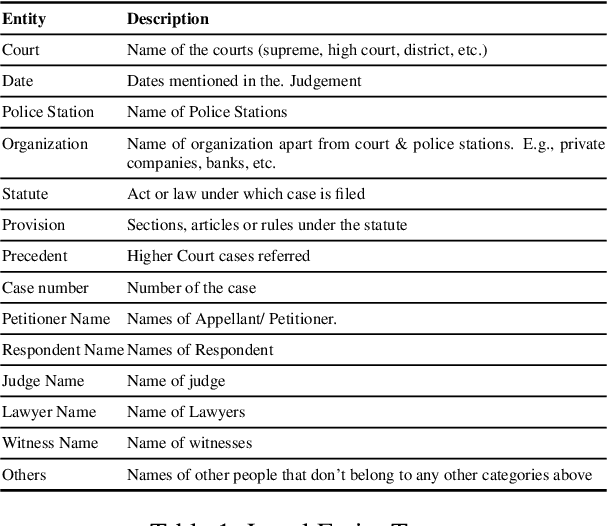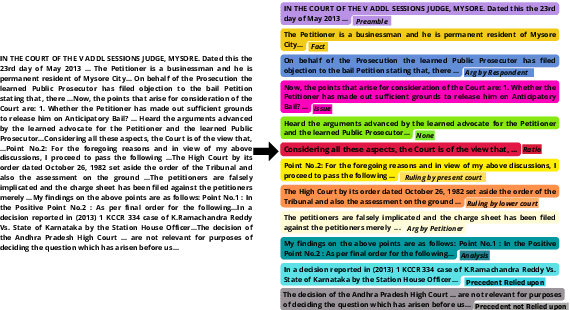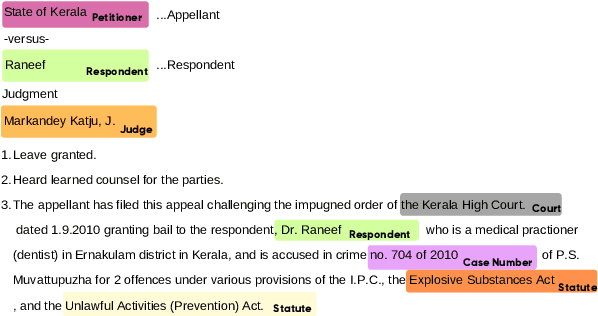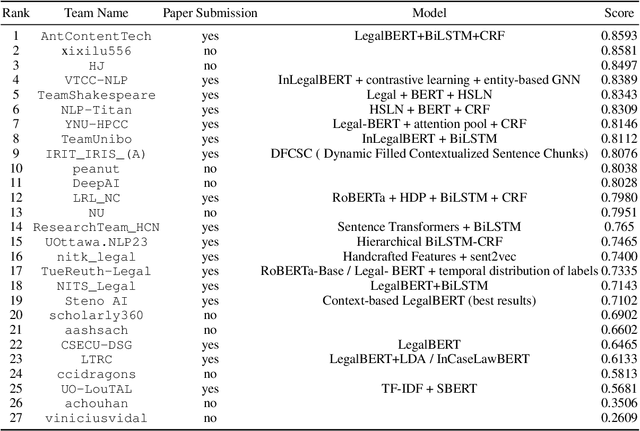Sai Kiran Tanikella
U-CREAT: Unsupervised Case Retrieval using Events extrAcTion
Jul 11, 2023Abstract:The task of Prior Case Retrieval (PCR) in the legal domain is about automatically citing relevant (based on facts and precedence) prior legal cases in a given query case. To further promote research in PCR, in this paper, we propose a new large benchmark (in English) for the PCR task: IL-PCR (Indian Legal Prior Case Retrieval) corpus. Given the complex nature of case relevance and the long size of legal documents, BM25 remains a strong baseline for ranking the cited prior documents. In this work, we explore the role of events in legal case retrieval and propose an unsupervised retrieval method-based pipeline U-CREAT (Unsupervised Case Retrieval using Events Extraction). We find that the proposed unsupervised retrieval method significantly increases performance compared to BM25 and makes retrieval faster by a considerable margin, making it applicable to real-time case retrieval systems. Our proposed system is generic, we show that it generalizes across two different legal systems (Indian and Canadian), and it shows state-of-the-art performance on the benchmarks for both the legal systems (IL-PCR and COLIEE corpora).
SemEval 2023 Task 6: LegalEval - Understanding Legal Texts
May 01, 2023



Abstract:In populous countries, pending legal cases have been growing exponentially. There is a need for developing NLP-based techniques for processing and automatically understanding legal documents. To promote research in the area of Legal NLP we organized the shared task LegalEval - Understanding Legal Texts at SemEval 2023. LegalEval task has three sub-tasks: Task-A (Rhetorical Roles Labeling) is about automatically structuring legal documents into semantically coherent units, Task-B (Legal Named Entity Recognition) deals with identifying relevant entities in a legal document and Task-C (Court Judgement Prediction with Explanation) explores the possibility of automatically predicting the outcome of a legal case along with providing an explanation for the prediction. In total 26 teams (approx. 100 participants spread across the world) submitted systems paper. In each of the sub-tasks, the proposed systems outperformed the baselines; however, there is a lot of scope for improvement. This paper describes the tasks, and analyzes techniques proposed by various teams.
 Add to Chrome
Add to Chrome Add to Firefox
Add to Firefox Add to Edge
Add to Edge